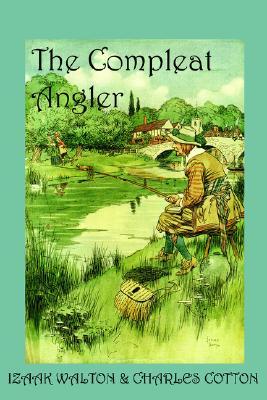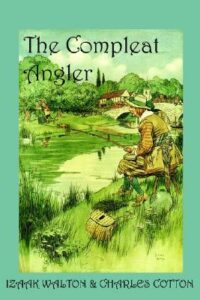Chapter IV — The Compleat Angler
byChapter IV – The Compleat Angler opens with a refreshing shift in tone, blending the serenity of angling with human warmth and rural life. Piscator and Venator, now joined by the milk-woman and her daughter Maudlin, find joy beyond fishing as they discuss the beauty and value of trout. These fish are celebrated for their elegance and culinary worth, seen as a gift of nature that aligns with the changing seasons, much like deer. Piscator emphasizes that trout thrive in quick-flowing streams with gravel beds, which purify the water and nurture quality fish. Regional differences in trout add to the mystique—some grow large in cold Alpine lakes, while others remain small yet flavorful in clear English brooks. This quiet marveling at natural diversity enriches the anglers’ understanding, reinforcing the book’s central theme: angling is as much about learning from nature as it is about catching fish.
As the discussion deepens, Piscator draws attention to curious local breeds like the Fordidge Trout. He describes it as elusive, never taking bait and living on a diet unseen by typical anglers—perhaps a nod to the unseen workings of nature. Their conversation brushes against the philosophical, pondering why some creatures behave so differently even within the same species. They compare this trout’s mysterious habits to those of birds and insects that defy usual laws of growth and survival. For Piscator, these anomalies aren’t frustrations but gentle reminders of nature’s depth, mystery, and wisdom. They accept that not everything in the world is meant to be fully understood. Instead, they find joy in the questions themselves, which mirror the wonder that makes fishing more than a sport—it’s a meditation on life’s subtleties.
A change of pace arrives when the anglers meet the milk-woman and Maudlin, introducing charm and softness to their outdoor pursuit. Their songs about nature, simplicity, and love serve as a beautiful counterpoint to the technical aspects of angling. These melodies are more than entertainment—they capture the rhythm of a pastoral life, where days pass with ease and joy is found in small things. Maudlin’s verses offer a window into a worldview untouched by haste, where love and labor exist in balance. Piscator and Venator listen not just with their ears but with hearts opened by the quiet hours spent in nature. These songs, like the flowing river beside them, add texture to the day—one that is not defined solely by the catch but also by shared human connection.
Soon after, the group is called to supper, their day drawing to a peaceful close. The simple promise of food, conversation, and reunions with old friends like Peter and a yet-unnamed companion adds anticipation to the evening. There’s comfort in routine and familiarity—in the walk back, the warmth of cooked trout, and the laughter of friends around a shared table. This closure echoes the larger rhythm that governs the book: days begin with a journey into nature and end with fellowship. The supper isn’t just about nourishing the body; it’s also about feeding the spirit through togetherness. Each detail—from the laughter of Maudlin to the wisdom of Piscator—intertwines to show that angling is never just about fish.
The fourth chapter continues to reinforce a gentle philosophy of life, where nature, knowledge, and people intersect with grace. It avoids the grand or dramatic and instead lingers in the beauty of simplicity—something readers in any age can relate to. Whether it’s marveling at the habits of elusive trout or pausing to hear a country girl’s song, the lesson is the same: take the time to observe, listen, and appreciate. As the anglers retire for the evening, the reader is left with a sense of calm fulfillment. Their journey through the countryside becomes more than a physical path—it’s a spiritual and emotional passage into a way of life that values depth, patience, and connection above all else.


